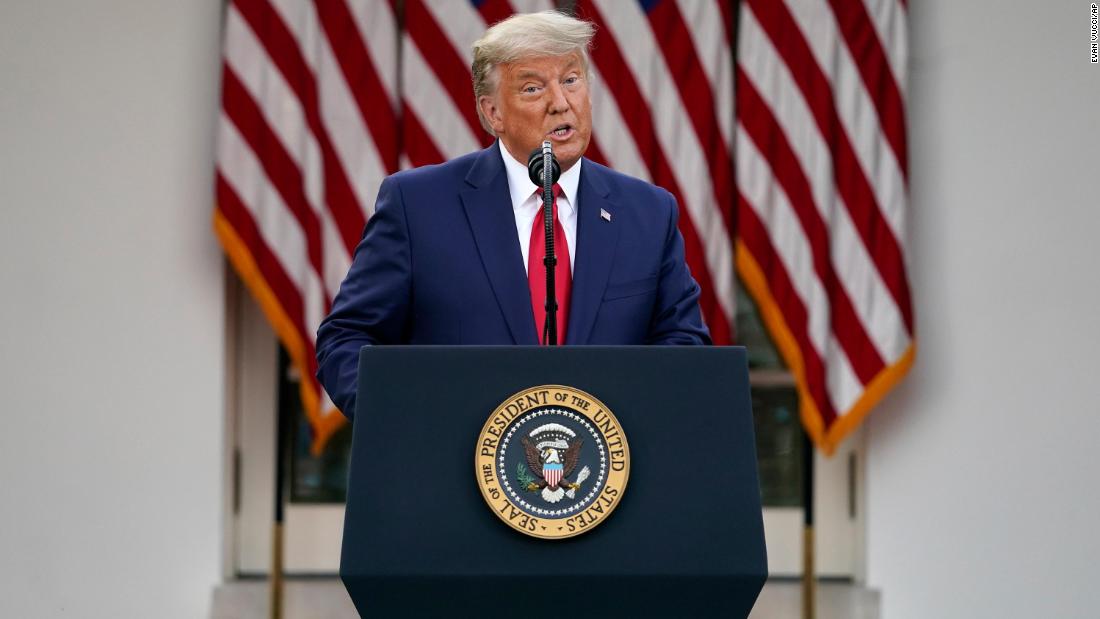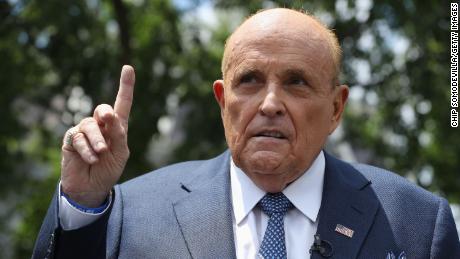The President’s obstruction suggests he aims to subvert his successor. But it may harm Americans.
The distribution operation will be a massively complex and historic public vaccination effort targeting hundreds of millions of Americans — many millions of whom have resisted following basic safety protocols like wearing masks because Trump has encouraged them not to. The inoculation campaign will require a high level of public trust and will involve sharp ethical debates among officials about who should get the vaccine first. The entire program could be damaged if it is politicized. But unless something changes, the Biden team may face the task of tackling those issues afresh, in a frantic catch-up operation.
The victims of this neglect will be thousands of Americans whom health experts expect to die or get sick in the absence of a coordinated national response to the winter spike in infections and workers caught up in new restrictions imposed on business by local leaders trying to get the virus under control — as well as the millions of schoolchildren who are already falling behind while classrooms remain shuttered.
Unlike Trump, who is wallowing in his sense of personal grievance and fury at what he sees as a humiliating loss, Biden does have a sense of urgency and new proposals, and he is calling for a coordinated national effort to mitigate the harrowing impact of the nationwide spike in infections.
But while he has the moral standing of an election win, he has no power to implement his plans until Inauguration Day on January 20.
Instead, his legal challenges, which have made little headway in the courts, seem expressly aimed at boosting conspiracy theories among his supporters and preserving his hold on the Republican Party, and ultimately to cast Biden’s tenure as illegitimate. The failure of many GOP leaders in Washington, who remain hostage to Trump’s political base, to unequivocally refer to Biden as President-elect or to rebuke Trump for his undemocratic conduct are only further undermining the next administration.
Two weeks after the election, it remains surreal and extraordinary that the President is refusing to accept Biden’s victory, which matched the 306 Electoral College votes that he himself stacked up in 2016. That he would act in such a way in the middle of a grave national crisis, with 246,000 Americans already dead from Covid-19 and millions out of work, is an even more revealing glimpse into the mind of a President who has consistently prioritized his own goals and gratification over a traditional view of the national interest.
Transition tension is a change from recent years
It is not unusual for there to be animosity between outgoing and incoming administrations, especially when a president has been ejected from office. The transition from President Herbert Hoover to President-elect Franklin Roosevelt in 1932-33 — in the middle of another crisis, the Great Depression — was notoriously prickly.
There are also expectations that the President will take steps in foreign policy, including stiffened tariffs on China or strengthened sanctions on Iran, that will further trim the next White House’s negotiating room.
Another departure from norms
In recent years, presidents of both parties have prioritized a peaceful and effective transfer of power over personal political pique, recognizing their duty to secure the health, security and welfare of the American people.
So the current President’s behavior, apparently motivated by fury over his defeat and a conspiratorial belief that the probe into his team’s suspicious and multiple links to Russians was part of a plot to render his presidency illegitimate, is a stark departure from recent norms.
Trump wants credit for the vaccine
One of Trump’s few recent references to the worsening pandemic was a tweet on Monday in which he demanded that historians recognize his role in the vaccine breakthroughs.
The President has ordered government agencies not to offer the traditional cooperation with the incoming administration or to allow the release of millions of dollars in funding, office space in agencies and briefings from government officials.
Biden initially reacted with circumspection to the move, apparently eager not to further antagonize Trump as the President comes to terms with his dashed hopes of winning a second term. But increasingly, the President-elect is warning of the damage caused by the impasse and is highlighting the vaccine in particular.
“The sooner we have access to the administration’s distribution plan, the sooner this transition would be smoothly moved forward,” Biden said in Wilmington, Delaware, on Monday.
While the nation’s top infectious disease specialist, Dr. Anthony Fauci, has said the vaccine could begin to be administered to high-priority patients like health care workers and the elderly in December, it will likely be at least April until it is available to most Americans.
“Transitions are important, and if you don’t have a smooth transition, you would not optimize whatever efforts you’re doing right now,” Fauci told CNN’s Jim Sciutto on “Newsroom” Tuesday morning, comparing the task to a “relay race in which you’re passing the baton and you don’t want to slow down what you’re doing, but you want the person to whom you’re giving the baton to be running with it as opposed to stopping and starting all over again.”
Dr. Luciana Borio, a member of Biden’s Covid-19 advisory board, told CNN’s Wolf Blitzer on Monday night that obstruction from the administration on the vaccine could have a serious impact on its eventual distribution.
“It’s very important to know what are the timelines for manufacturing the vaccines,” Borio said. “This is not going to be easy; this is a complex task.”
But Oregon Democratic Gov. Kate Brown told CNN’s Jake Tapper that during a call between state leaders and the White House coronavirus task force on Monday, Vice President Mike Pence made no mention of transferring responsibility for vaccine distribution.
“The Vice President clearly articulated a strategy for distributing the vaccines across the country,” Brown said. “But the conversation was extremely disingenuous when we have a new administration coming in in a matter of weeks. There was no conversation about what the hand-off was going to be and how they were going to ensure that the Biden-Harris administration would be fully prepared and ready to accept the baton.”
CNN’s Veronica Stracqualursi contributed to this report.
![]()




